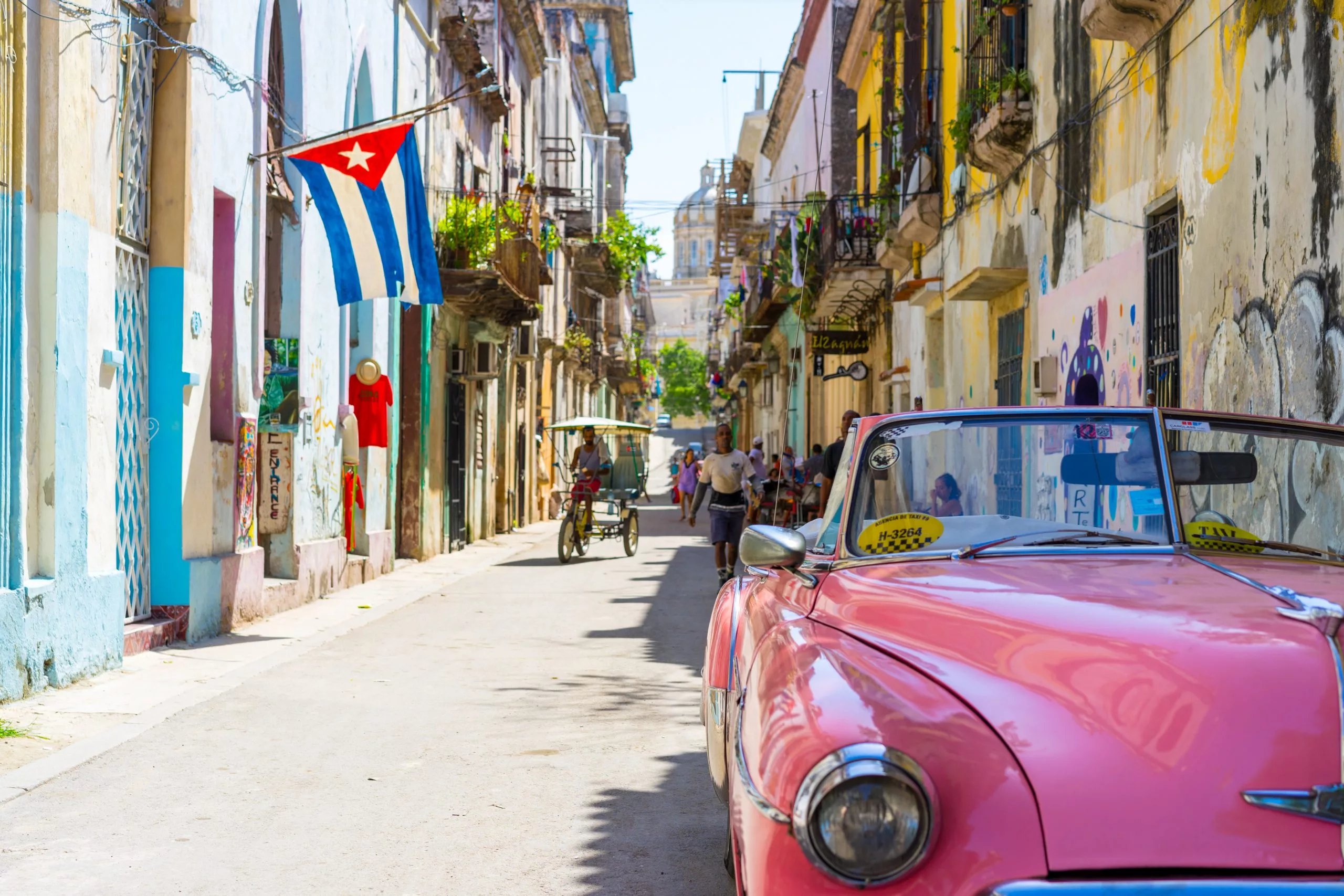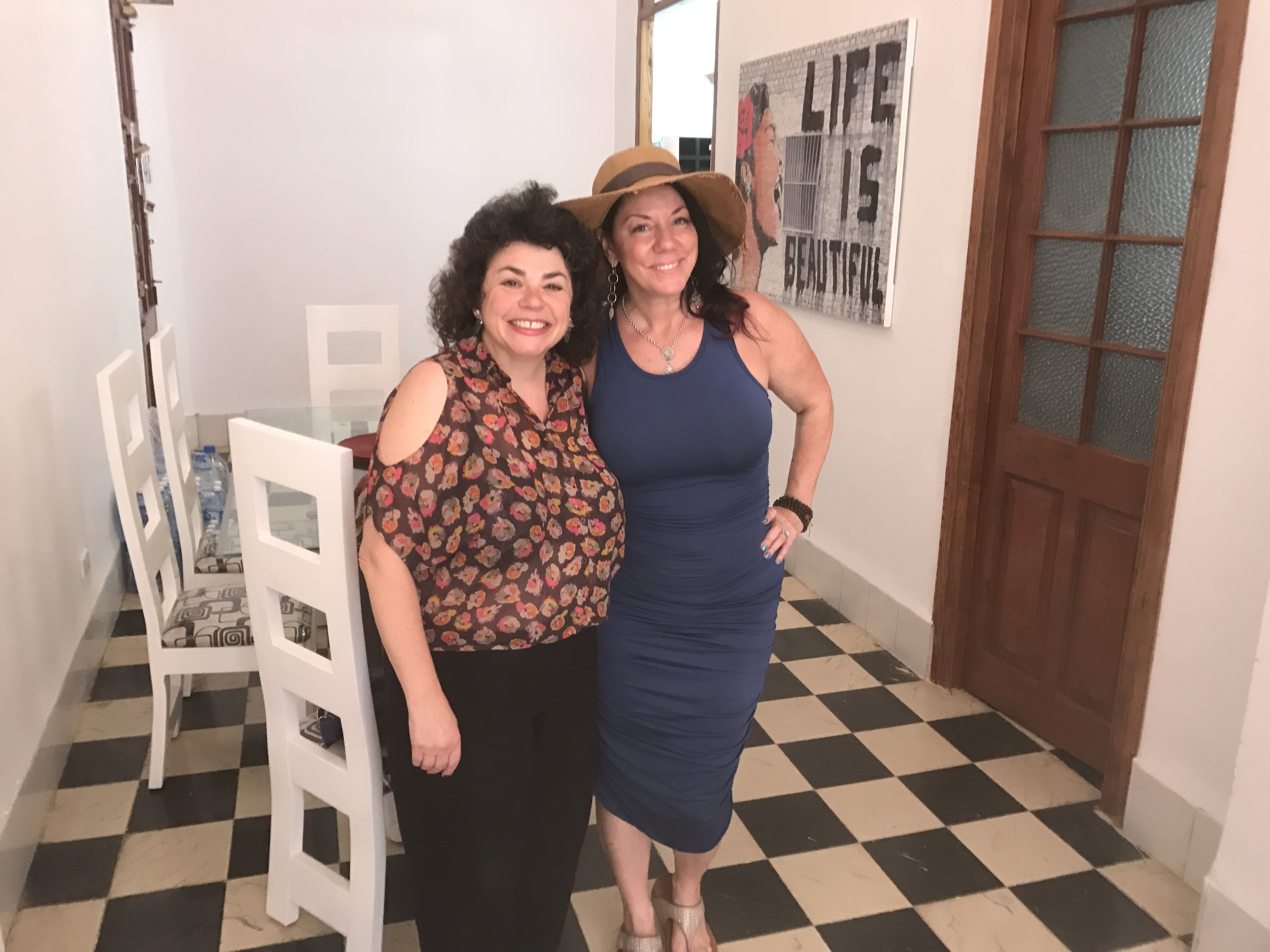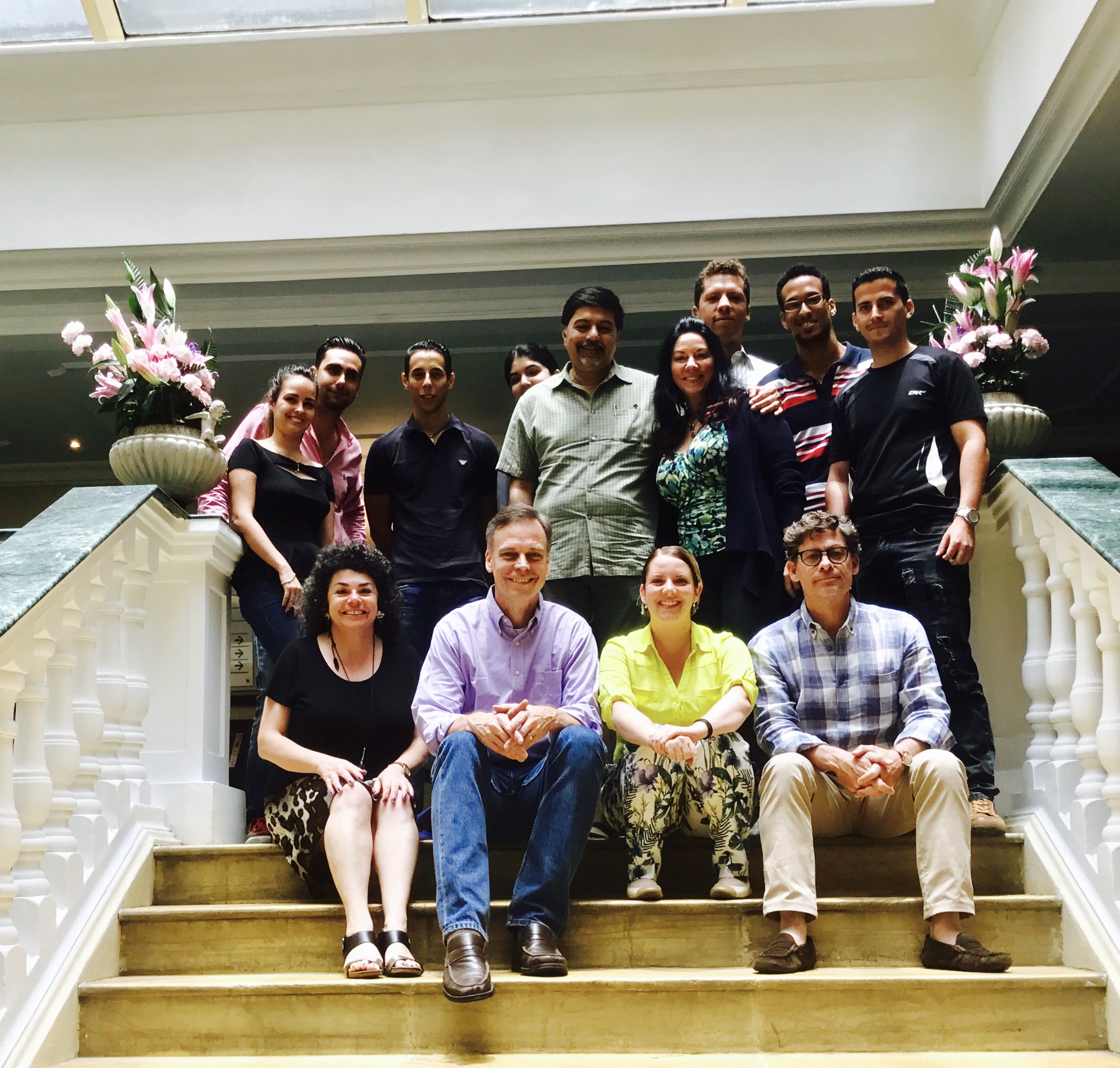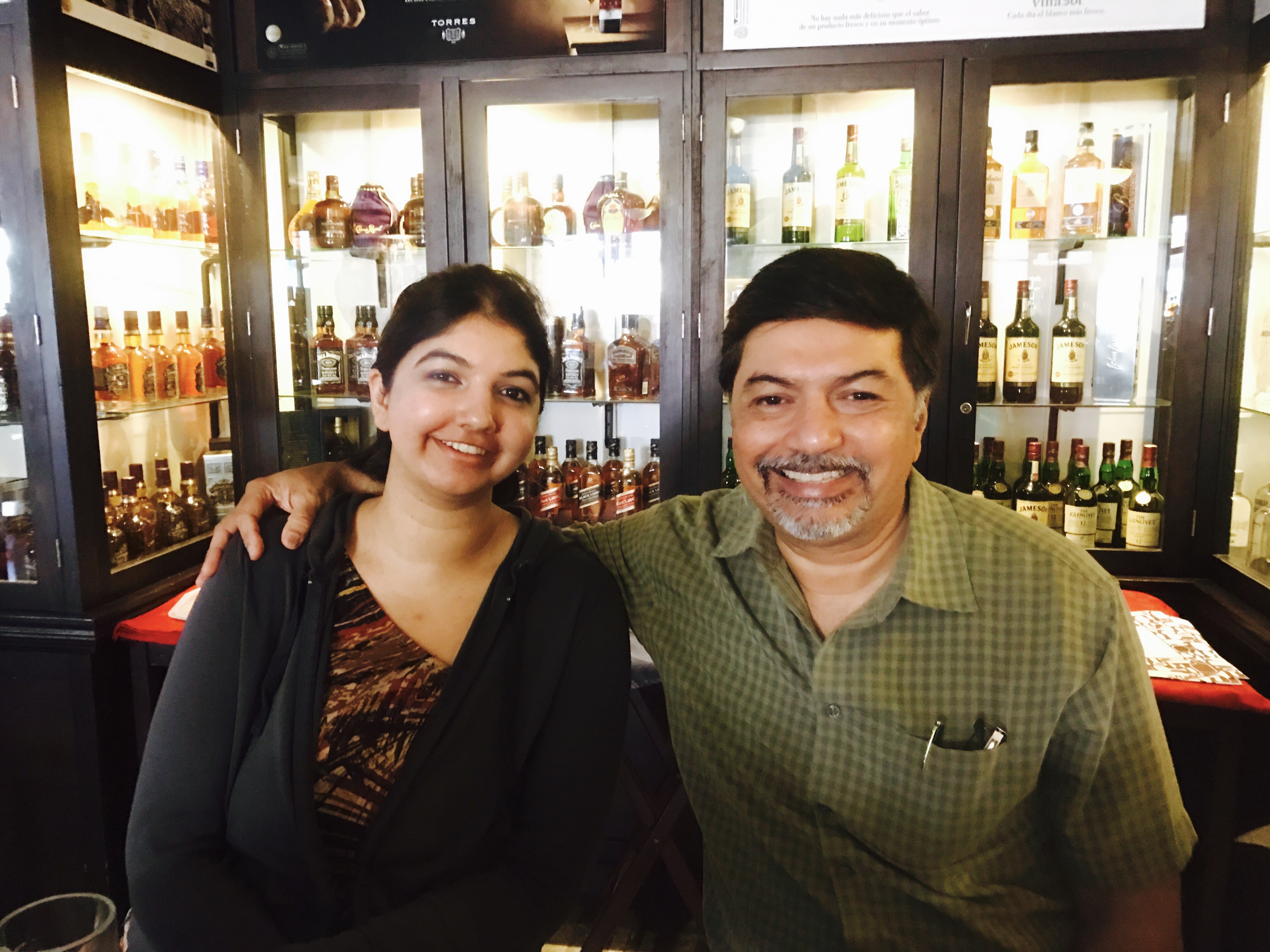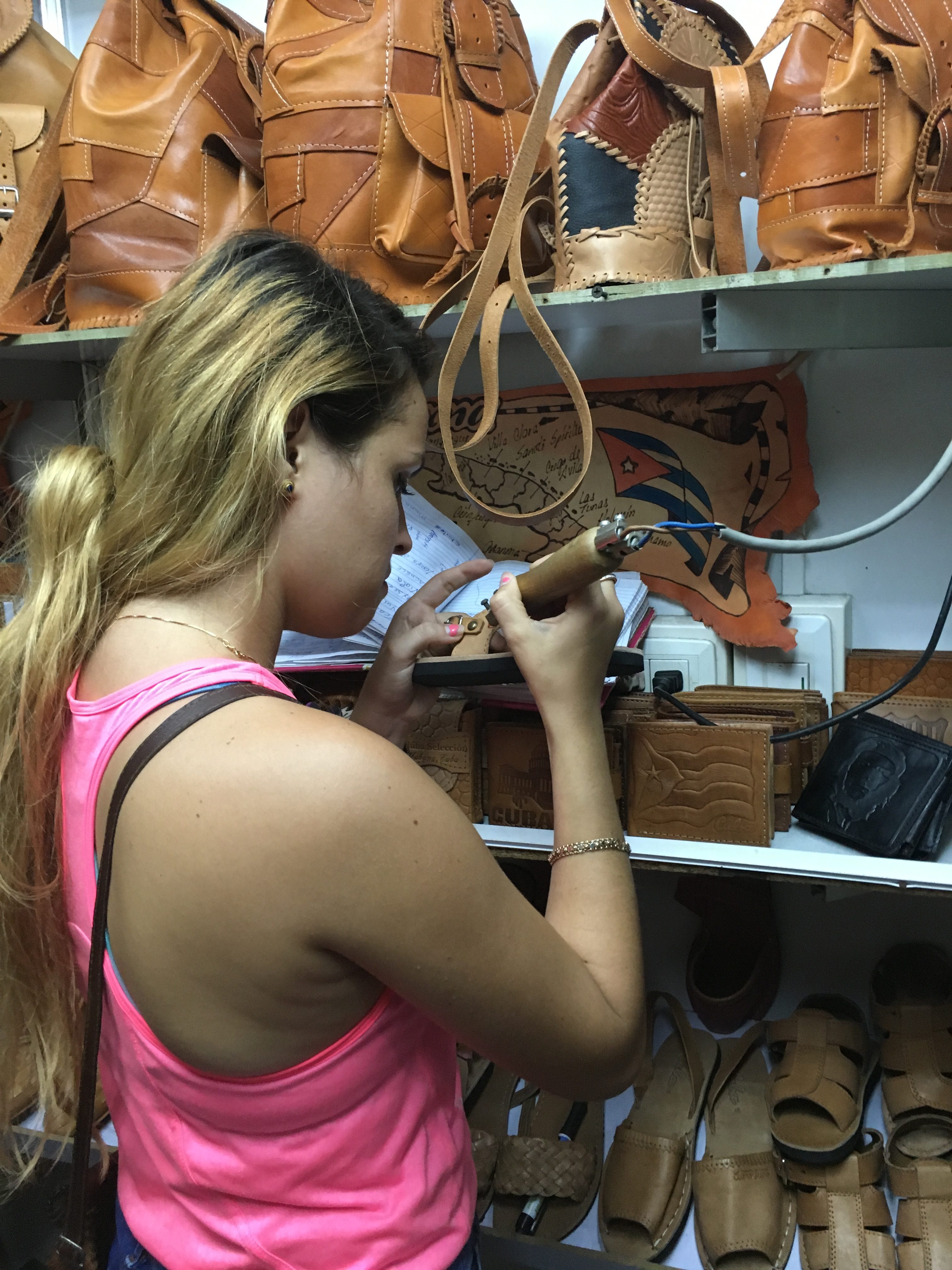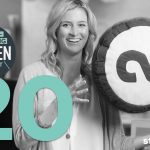Imagine you’re the first generation of entrepreneur in your country. In fact, the word “entrepreneur” isn’t even part of the vernacular. This is the reality in Cuba, where the government has only recently allowed small enterprises. WiFi access has just become available earlier this year, and Cubans have only recently gained access to Google.
Earlier this year, CEO and humanitarian Susan Leger Ferraro invited a team from the Americas to meet with Cuban entrepreneurs to share a vision of a form capitalism that serves the needs of society. The founder of several companies, including Imajine That and G3, Ferraro is working with Cuban counterparts to invest in properties for the 5 million tourists entering Cuba each year. While rebuilding properties, Ferraro is at work helping schools and bringing books and other tools to young Cubans.
Our delegation included leaders from the US, Brazil, Mexico, and Costa Rica who work to promote Conscious Capitalism. The Cuban entrepreneurs we met were young business owners eager to learn and share their vision with us. We first met the entrepreneurs atop the Hotel Ambos Mundos, where Ernest Hemingway lived and wrote some of his most well-known books. Over mojitos, we learned more about Cuban history and the sheer determination of Cubans to survive through starvation and fear. The Cuban entrepreneurs we met with were worried about engaging with us. Many of the people we’d invited were too frightened to attend the workshops. We took pains to avoid using controversial words like “capitalism” and “revolution.”
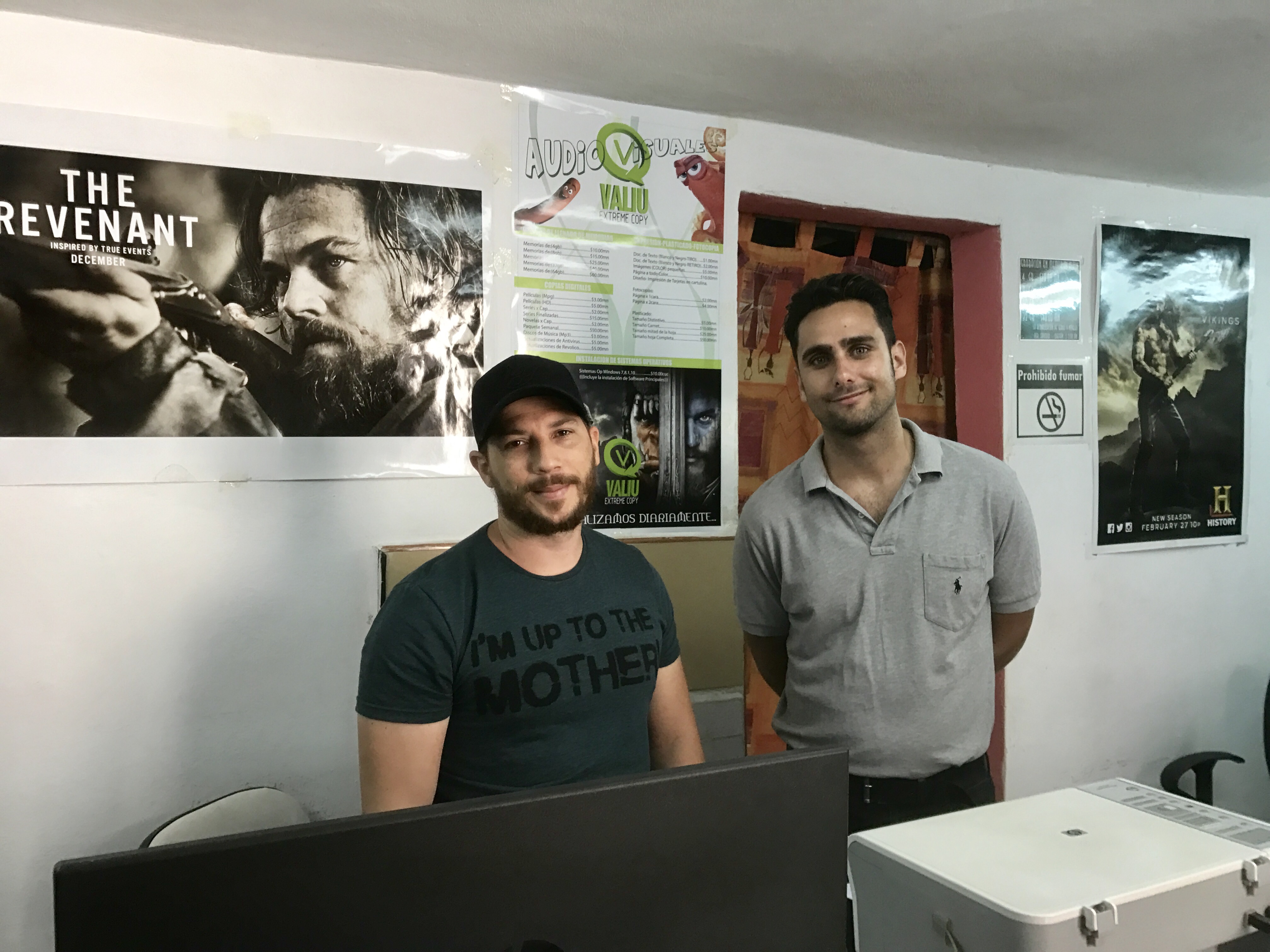
Jose (right) sharing his new entertainment business with Eduardo (a local who also attended the Conscious Capitalism gathering). Jose began by selling movies, music videos, and other media on flash drives from his home. He recently expanded into this storefront space in Old Havana.
Over the course of several days, we explored the strengths and weaknesses of Cuba and the dramatic changes the country is undergoing. Cuba’s literary rate is among the highest in the world, as 97 percent of the population can read and write. All Cubans have access to medical care. Art, music, and dance flourish. The Cuban people have a deep sense of respect for their history and this shows in the extensive renovations currently being undertaken in Old Havana. However, parts of the city are literally crumbling.
Geography has blessed Cuba with some of the most beautiful beaches and landscapes in the world. The country has very little exposure to pesticides or genetically-modified organisms. However, economic sanctions have crippled the economy, and items like toilet paper and soap are in short supply. Open dialogue is just beginning in Cuba.
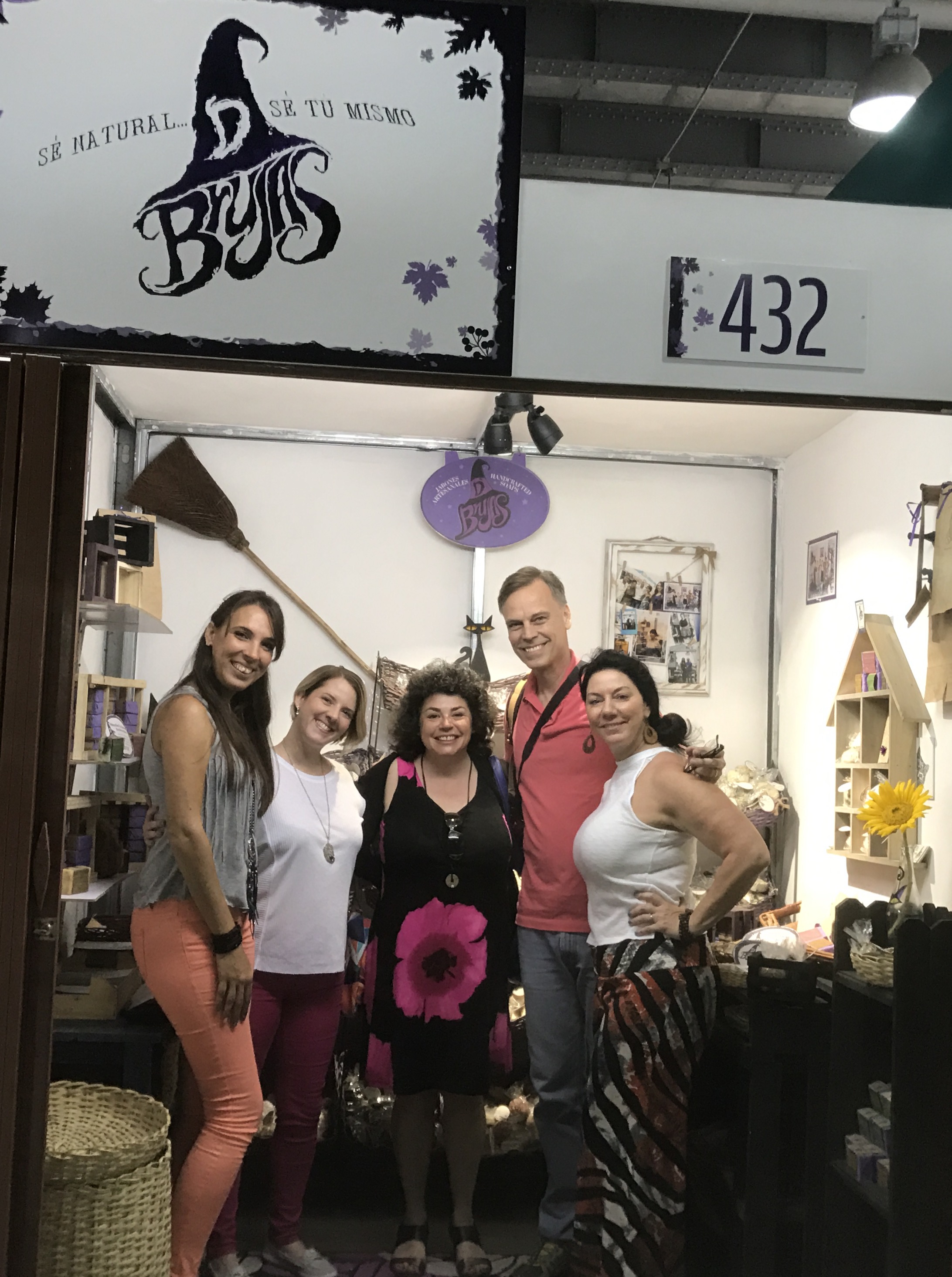
Founder and craftswoman Sandra Aldama Suarez (far left) sells handmade soap. Her brand D’Brujas (“Witchcraft”) is so called because its products are made with ancient herbal concoctions. Included in photo are other participants in the Conscious Capitalism gathering, including the authors.
The Cuban entrepreneurs we met face many challenges. There is no training for entrepreneurs. The young business owners are just learning how markets work. Our delegation taught the young Cubans about the importance of stakeholders. Professor Raj Sisodia, author of “Conscious Capitalism,” shared his vision that companies can be heroic and serve a healing purpose.
In our meeting, Pedro, a 24-year-old Cuban entrepreneur, quoted Fidel Castro: “Revolution is everything that needs to change.” Our delegation began to change the things that need to change. We created direct contact with business leaders, shared knowledge, and are sowing the seeds for future exchanges.
One of the most poignant memories of the trip involved working with Eduardo, a brilliant young Cuban entrepreneur, with whom we shared basic concepts about sustainability. Hardened by a difficult life, he told us: “I believe in Cubans.” After this trip, our delegation does too.
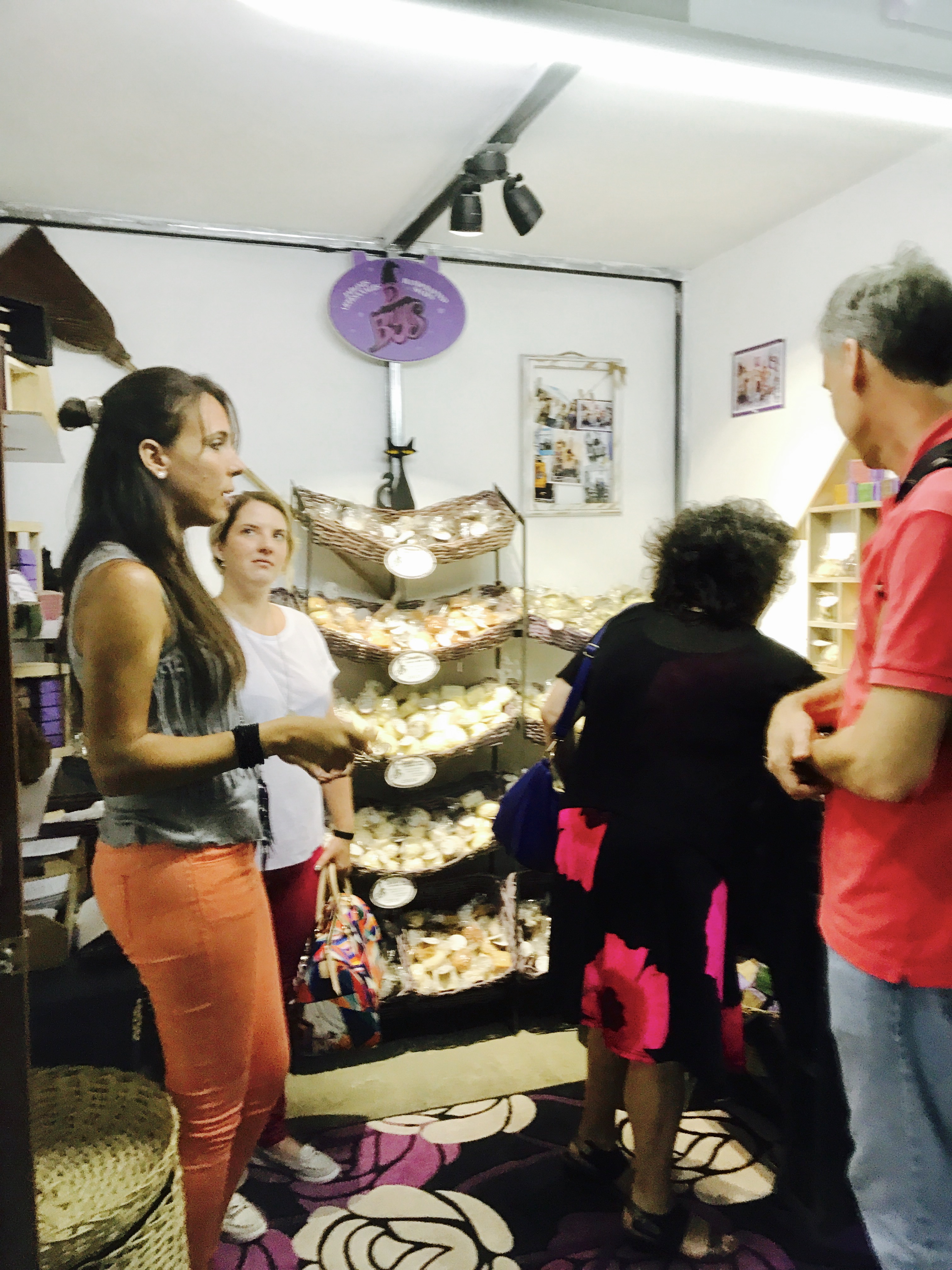
Yunelis sources her organic cured leather materials in the country produced by local farmers and artisans.
In her teens, she worked for this business for three years before buying it from a fellow Cuban. She has expanded to two locations, including this shop in San Jose Market in Old Havana

Francisco (right) and Jeffrey, an American, showing off dishware. Like many new enterprising Cubans, Francisco is stepping into the tourist space, particular hospitality, cooking, cleaning, and purchasing products for property owners as the real estate market turns up and Cuban tourism increases from 2 million visitors in 2015 to 5 million predicted in 2017.
